On one hand it's less expensive than ever to do photography now with digital because you don't need to spend large amounts of money on processing.
Kawaha Point, Rotorua
It's more satisfactory because you can just delete the photos you don't like in camera and take another shot.
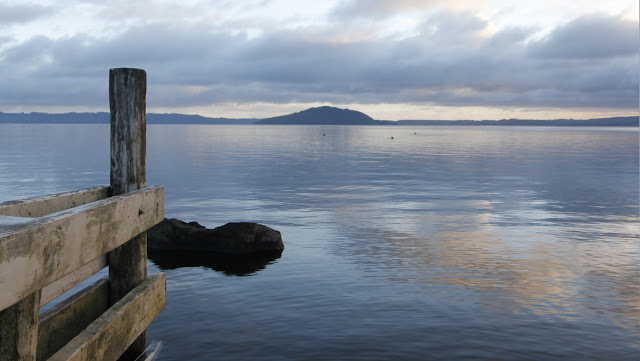
Ohinemutu, Rotorua
On the other hand the more I get into photography, the more I want to spend on camera gear, in particular lenses.
 Lone Seagull at Maketu.
Lone Seagull at Maketu.
The latest version of photoshop, a laptop computer, a desktop computer, a good tripod, spare memory cards, a decent camera bag, a new wide angle lens, and a 24 to 105 lens for travel and all round photography.
Not to mention attendance of Photography conferences, photography workshops, paying to study a Diploma in Digital Photography.
And so it goes on and on.
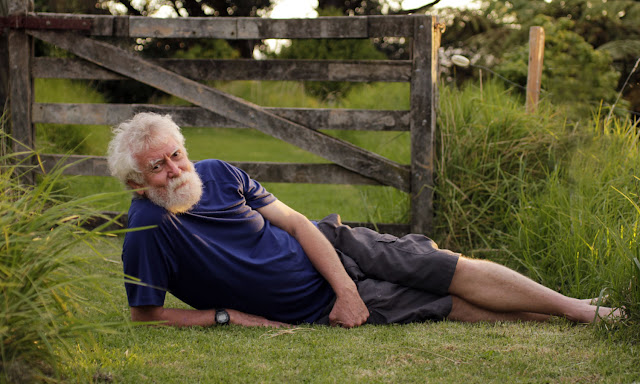
My husband has no difficulty in trying to figure out what I want for Christmas presents and birthdays.
If it's about camera gear, I want it.
I figure it is money well spent.
I am so immersed in creativity, art making, gardening, teaching and photography, life seems full of adventure and excitement.
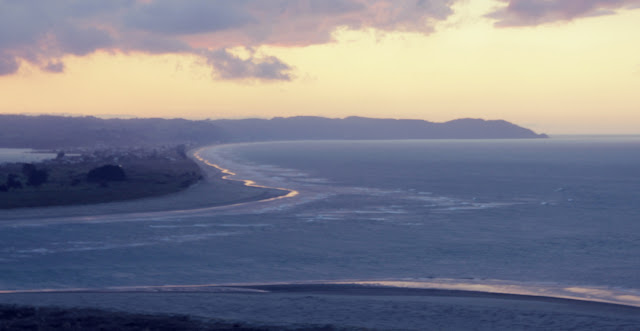
Ohiwa from top of hill.
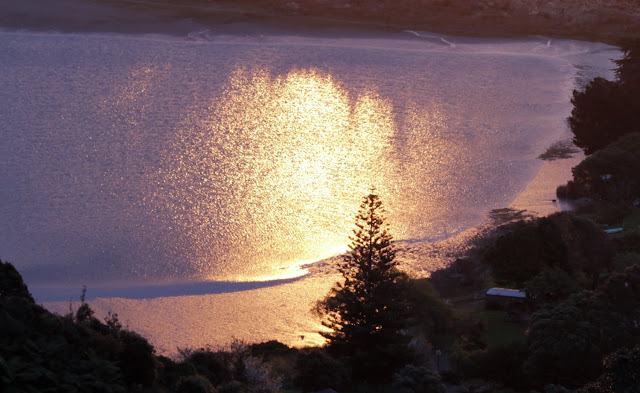
I would love to go to Italy to see some mosaics and do a lot more travelling in general and I'm sure that day will come, if not there's plenty in my own back yard of New Zealand to be excited about and inspired by.
Ohiwa
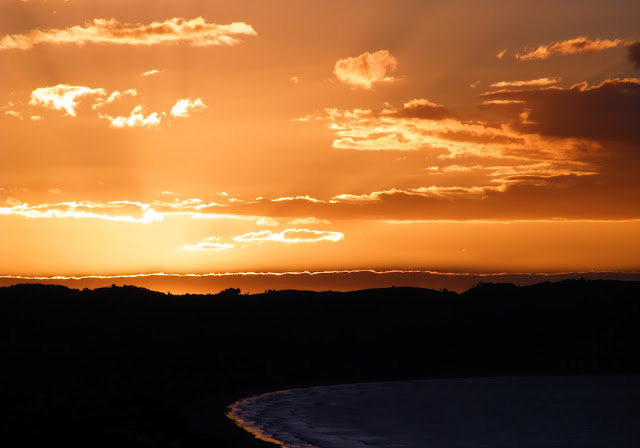
Things to look out for when you are a novice photographer.
1. Composition Too Busy.
Too many things in picture
frame/ taken from too far away/ subject may be unclear.
Reduce the
number of distracting objects or confusing the message you are trying to
convey.
Move closer to the subject so that too many other objects are not
in the picture.
2. Composition Lacks Impact. Boring perspective or subject is not well arranged in its setting.
Consider unusually low or high-up perspectives and avoid boring
snap-shot type photos.
Try getting candid shots that capture natural
expressions rather than staged and unnatural poses.
Try looking at your
subject from up close so the background is out of focus and using a
wide-open aperture, for minimal depth of field.
aperture and vice versa.)
3. Blurry Image. Camera motion/ shutter speed too long/ low light.
If you are using automatic focus make sure to give the camera enough
time to focus on the right spot and lock-on to its target. (Typically
with digital cameras set to Auto, holding the exposure button down
half-way down will activate the auto focus so that when you are ready
you simply push the button fully down to take a picture)
For
long-exposure shots try using a tripod if you can or otherwise
stabilizing the camera.
4. Poor Framing
Try to frame pictures to include the tops of heads and feet unless you
are doing it for effect.
If you severe a portion of the subject from
your picture it can’t be put back later. Remember you can always crop it
later if you think it improves the image.
5. Dirty Lens
Make a habit of checking your camera lens and cleaning your lens before
shooting pictures.
Also make sure to take care in how you handle your
lens, to not scratch it with abrasive clothes.
6. Glare
Sometimes by simply moving your camera to a different spot you can avoid
unwanted glare from light sources and reflections.
Using a UV filter is
a good idea to remove unwanted glare from your pictures. A polarizing
filter gives you different settings with which you can selectively
remove or add glare for effect.
7. Dead Battery
Buy extra batteries and bring them with you.
Remember to charge up your
rechargeable batteries before you plan on using your camera; doing this
the night before going on a photo-taking trip is smart.
Having a
rechargeable battery charged up pays off every time your camera is ready
to use when you need it.
8. Out Of Memory
Being prepared means bringing all the necessary equipment, memory cards. When shooting digital pictures being aware of
the resolution you are shooting at is also important.
Shooting at the
highest available quality setting can use a lot of memory so that you
run out of memory too fast.
Higher resolution pictures also take up more
memory to back up and take longer to upload.
If you are just posting
some snap shots on Facebook you probably don’t need the highest
settings.
If you are printing or blowing up your pictures you may need
the highest settings available. So, it all depends on what you are using
the pictures for.
“Landscape photography is the supreme test of the photographer - and often the supreme disappointment. ”
―
Ansel Adams
All photographs and images on this blog are for sale.
Email me at jkeen@clear.net.nz with your enquiry.
Phone 07 3463435
All photographs are copyrighted by Janet Keen and may not be used for any purpose without written permission


 Nesting gulls at Sulphur Point, Rotorua
Nesting gulls at Sulphur Point, Rotorua  OKareka Bird Hide, Rotorua
OKareka Bird Hide, Rotorua 
 Lone Seagull at Maketu.
Lone Seagull at Maketu. 











No comments:
Post a Comment